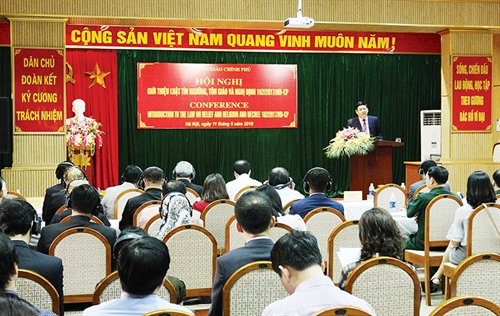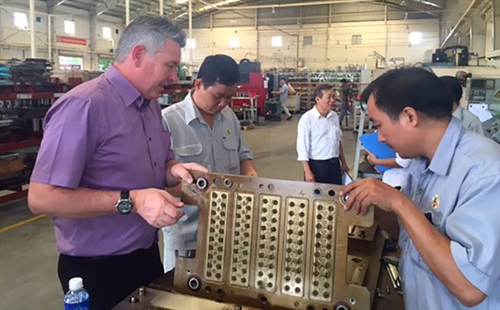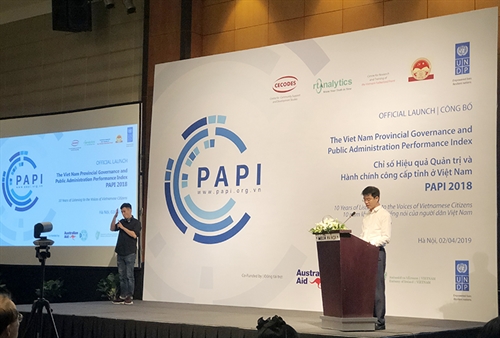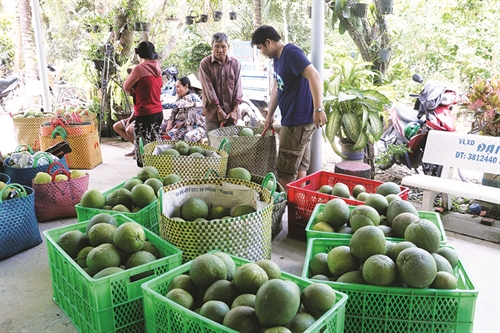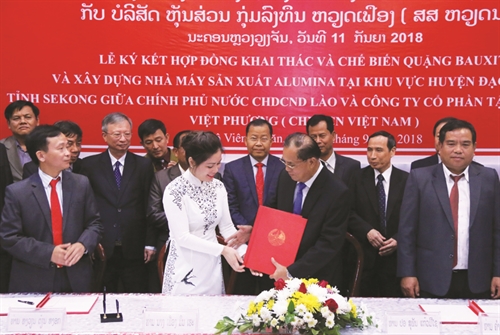This article presents findings from the questions about issues of greatest concern for citizens in 2018, as part of the 2018 Vietnam Provincial Governance and Public Administration Performance Index (PAPI) Report[1], which captures experiences and perceptions related to governance and public administration performance at national and local levels in 2018 based on a survey of 14,304 citizens with different demographic characteristics, randomly selected from all 63 provinces and cities.
Paul J. Schuler, Edmund J. Malesky and Do Thanh Huyen[2]
One of the most important questions on the PAPI survey is an open-ended question asking citizens to identify the most important issue the Government should tackle. This question allows citizens to provide input as to where they feel the Government should devote its energy in subsequent year(s). This article presents findings from the analysis around those issues of great concern and provides food for thought for policymakers and practitioners on where there exist pressing needs that call for prompt responses.
As briefed in our article introducing key 2018 PAPI findings on the March & April 2019 issues of Vietnam Law and Legal Forum magazine, poverty was the issue of greatest concern in 2018 by far, and this has been the case since 2015 when the question was introduced. Approximately 25 percent of citizens cited it as a top concern in 2018, with economic growth coming in second and corruption third. Economic growth and jobs/employment were among the five most important issues in 2018, among which were also corruption and environment.
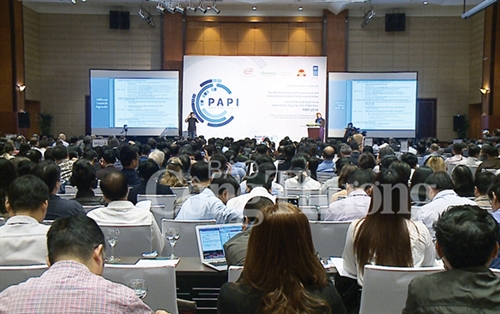 |
| A press conference held in Hanoi on April 2 to release the 2018 PAPI Report__Photo: congthuong.vn |
Poverty: greatest concern and why
While Vietnam’s economic growth rate in 2018 was reported to reach 7 percent, Vietnamese citizens continued to cite poverty and hunger as the two top matters requiring additional efforts by the State. Poverty ranked first in the list of issues of greatest concern for the fourth year in a row. As Figure 1 shows, since 2015, concern about poverty was constantly probed by larger proportions of the population. Approximately 25 percent of all respondents cited it as a top concern in 2018, a slight drop from the peak rate of 28 percent in 2017.
Deeper analysis into PAPI data shows that the concern about poverty is on a number of reasons. First, it is about the fear about falling back into poverty among the respondents. Since 2017, respondents have been asked about why they are most concerned about poverty if they show the concern. The 2017 and 2018 findings show that, between 44 and 45 percent of the respondents were worried that they would fall back into poverty; and 55 to 57 percent worried about their families falling back into poverty. When disaggregated by income levels, the lower income respondents earned the more concerned about falling back into poverty they were. (see on Figure 1)
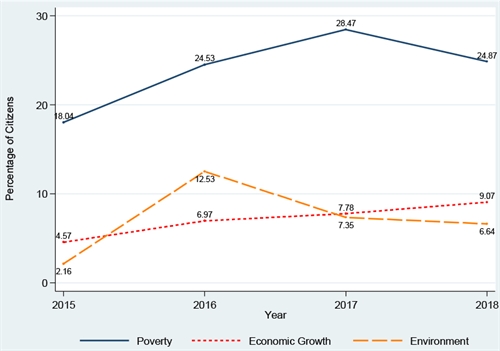 |
 |
Second, and more interesting, many concerned about the impact of poverty on overall national development. It is interesting that a majority of those who chose poverty as the greatest concern shared that poverty reduction has large implications for Vietnam’s development, with 86 to 89 percent of the respondents in all income strata selecting this option to explain about why they were concerned about poverty in 2017 and 2018.
Third, income inequality was a significant driver. When looking deeper into the income strata and examining the correlation with poverty concern, it shows that income inequality is a significant driver of poverty concerns. As many as 90 percent of the PAPI respondents earned less than VND 20 million (about USD 820) per person per month in 2018, compared with 10 percent earning more than VND 20 million (of whom only 1.7 percent earn more than VND 40 million). (see on Figure 2)
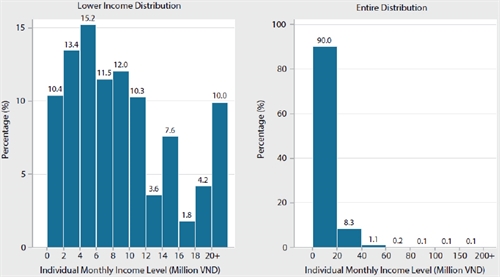 |
 |
As Figure 3 shows, the income gap between ethnic minorities and Kinh majority is significant at VND 3 million per person per month (i.e., VND 10 million for Kinh and VND 7 million for non-Kinh). The income gap is greater between rural and urban ethnicities. For a rural Kinh, an average monthly income was about VND 4 million greater than a rural ethnic minority individual; and an urban Kinh person earned about VND 1.5 million greater than an urban ethnic minority person. (see on Figure 3)
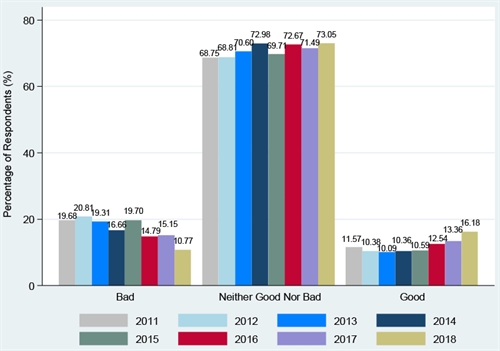 |
 |
To assess the role that income plays in citizens’ attitudes toward poverty, economic inequality and redistribution policy, regression analysis was undertaken to examine how income is linked to these attitudes. Consistent with our expectations, poorer respondents were more concerned about poverty than those with higher incomes in 2018. Nearly 40 percent of those at the lowest income levels felt poverty reduction should be a national priority. However, despite the relationship, the effect is not as strong as one might presume. For instance, an estimated 31 percent of those earning VND 40-42 million per month still expressed concern about poverty reduction. However, gender is far more correlated with concern about poverty; women were almost 10 percent more likely than men to view poverty as an important concern.
Such findings highlight the fact that inclusive and equitable economic development remains a priority for Vietnam as it aims to become a high middle-income country. The differences in priorities between men and women imply the need for equitable representation in government leadership positions for both genders so that matters that are of women’s concern will be equally addressed as men’s concern.
Economic inequality
In 2018, Vietnam’s gross domestic product (GDP) growth rate was 7.08 percent, reported to be the highest since 2008, according to a recent report by the General Statistics Office.[3] This improvement in national economic conditions is reflected in the data about citizens’ perceptions of their household economic conditions in the year. The PAPI findings over time show a higher level of citizen optimism about their current household economic conditions (see Figure 4). Although the vast majority continued to say that their household economic situation was neither good nor bad, there was a decrease in the percentage saying their situation was poor, and there was a clear increase in the percentage saying their situation was good. This matches the positive trends observed in the 2011-18 Basic Asset Index from PAPI surveys from 2011 to 2018 as presented in Figure 5. The year 2018 also witnessed a clear jump in the percentage of citizens saying that they expected their household economic situation to improve in the next five years. (see on Figure 4 and Figure 5)
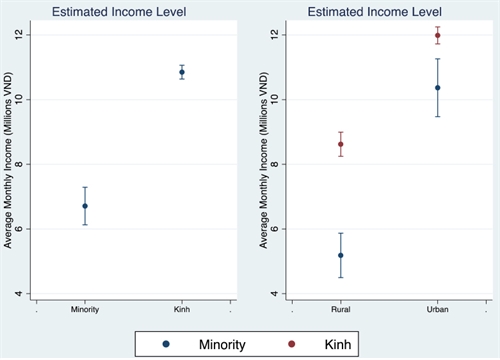 |
 |
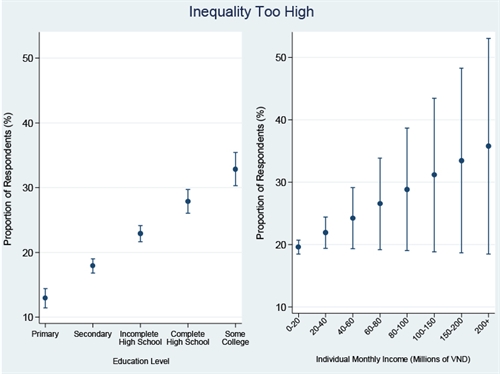 |
 |
Given optimism about the economic situation of households may impact citizens’ assessment of different aspects in PAPI, we went further in assessing citizens’ attitude toward economic inequality in 2018. In general, a large proportion of respondents did not feel that the current rich-poor gap in Vietnam is a significant problem. In 2018, there were more respondents who said that the gap was either very narrow or narrow, or neither narrow nor large, than those who said that the gap was large or very large. Furthermore, since 2016, less than 30 percent of respondents have said that current economic inequality is too high. As economic conditions have improved over the past years, a declining number of respondents have expressed concern about inequality levels.
Another important question is how concern about inequality corresponds to income levels. In short, are poorer respondents left behind during the economic growth of recent years more likely to express concern about inequality? Figure 6 shows that this is not the case. The relationship between income and concern about inequality is quite weak, and if anything, positively correlated with income. That is, wealthier respondents seem to be more concerned with inequality than lower-income respondents. Further analysis shows that the factor with the strongest impact on a respondent’s concern about inequality is education; more educated respondents are more likely to express concern than less educated respondents. (see on Figure 6)
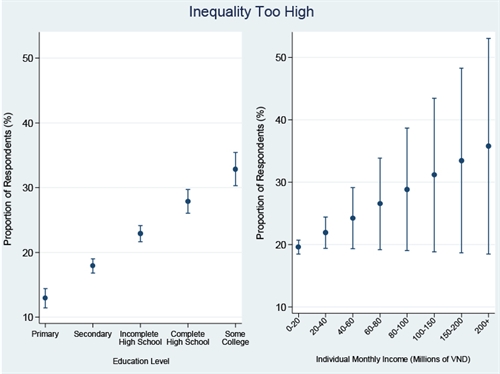 |
 |
The analysis reveals that although poverty remains the issue of greatest concern, particularly among the poor, the rich-poor gap is less important, even among poorer respondents. This leads to the next question about willingness to pay taxes for wealth redistribution to poorer areas. Provincial transfers help provide increased resources for poorer areas. One might presume that richer respondents, who stand to gain less from individual or provincial transfers, would be less likely to support the policy of collecting taxes for redistribution through provincial transfers. However, as deeper analysis results show, this is decidedly not the case. It is not the poorest respondents who are more supportive of paying more taxes for wealth redistribution from their province to poorer provinces, but rather the wealthier respondents.
Findings from the PAPI surveys show that, despite rapid declines in poverty and improvements in economic conditions, many Vietnamese, particularly those in lower income strata, remain concerned about poverty. As the Government continues searching for solutions to poverty reduction and higher economic growth, they should consider the types of policy options citizens would support. The PAPI data show that while there is a high level of support for paying taxes for redistribution of wealth for poverty assistance in poorer provinces, the support is greatest among wealthier and more educated respondents who have more resources and willingness to contribute to further poverty reduction. With 90 percent of the population earning less than VND 20 million per person per month, and a much smaller group of wealthier people, policy on tax-based redistribution should be well-articulated and well-designed so as not to upset low income earners.
The findings suggest a complex relationship between concerns about poverty, attitudes toward economic inequality, and wealth redistribution. In short, while those at the lower end of the income scale are more likely to see poverty as an important concern, this does not necessarily translate into similar attitudes about inequality or support for redistributive policies. As the findings show, poorer respondents are no more likely than richer respondents to view inequality as an important concern, nor are they more likely to see wealth redistribution as a desirable policy. One possible explanation is that poorer respondents are skeptical that increased resources from their taxes to local governments will actually reach poor people in other provinces. Alternatively, poorer respondents might feel that it is unlikely that richer respondents will be targeted to pay for poverty reduction programs, thus lowering the redistributive effects. These potential explanations demand further exploration.-

